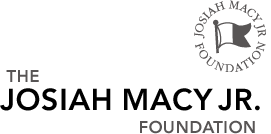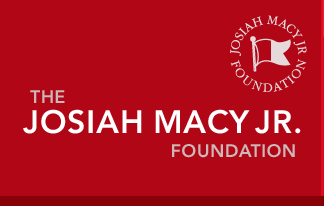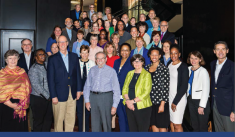Our Grantees
Across the Foundation’s priority areas, our grantees are working to improve the health of the public through innovative research and programs. The Foundation awards up to 40 grants on a rotating schedule each year.
Health Communications Dissemination Phase
The Case Western Reserve University School of Medicine (CWRU) team plans workshops for faculty from medical schools in the midwest and south, offering instruction in health communications skills in undergraduate and graduate medical education. The CWRU faculty will also develop a course in health communications suitable for continuing medical education programs.
In each of the two years, three two- and a half-day workshops will be offered to a limited number of fellows, perhaps two to four, from each of the participating medical schools, for a total of 10 to 25 fellows in each group. The first two workshops will concentrate on the identified core competencies and basic strategies for teaching and evaluating communication skills. Participants will then test their newly acquired skills at their home institutions and, during the third workshop, report the results of their efforts and receive assessment and feedback from faculty and other participants.
For the two-year duration of the Macy grant, participants will attend workshops tuition-free but pay their own expenses with the expectation that that tuition will be charged for participation in subsequent years. Though similar to the UMass program, the Case Western program focuses more directly on resident and practitioner training, features that are essential to further dissemination. This focus is particularly timely because the Accreditation Council for Graduate Medical Education (ACGME) requirements for residency training now include communication skills and many group practices are including communication skills in their rating of members, which has increased the demand for continuing medical education.
The preceding two grants reflect proposals from 2 of the 3 consortium schools involved in the extremely successful Macy Health Communications Initiative now in its fourth and final year. New York University, the third consortium school is conducting two three-day courses for medical schools in the mid-Atlantic region with funding from the original grant. They are also coordinating publication of the results in peer-reviewed journals.
The results of the Health Communications Initiative have already been reported upon in numerous publications and at national meetings. Members of the consortium have also responded to numerous requests from other institutions seeking information hoping to duplicate the initiative. The consortia schools will continue to collaborate on major journal articles.




 11.13.18
11.13.18